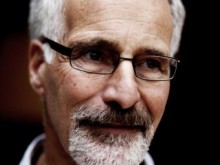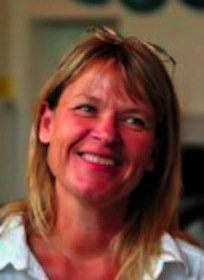Considers classification of psychoactive drugs (including alcohol); their effects on the brain; the drug experience; biological factors that influence the effects of long-term drug use; absorption and elimination of drugs, and the harms and risks of drug use. (6,176 words)
My Journey: 1. A Career in Neuroscience
 Outlines my neuroscience career, from a three-year Postdoctoral Fellowship with Nobel Laureate Arvid Carlsson in Sweden to running my own research laboratory for 14 years in the UK. Our laboratory’s research was focused on the regulation and function of brain dopamine systems, with a particular interest in addiction. In 2000, I closed my laboratory, as I did not think that neuroscience research was helping people overcome addiction. (3,492 words)
Outlines my neuroscience career, from a three-year Postdoctoral Fellowship with Nobel Laureate Arvid Carlsson in Sweden to running my own research laboratory for 14 years in the UK. Our laboratory’s research was focused on the regulation and function of brain dopamine systems, with a particular interest in addiction. In 2000, I closed my laboratory, as I did not think that neuroscience research was helping people overcome addiction. (3,492 words)
1. Learning About Drugs and the Brain
In the third year of my Psychology undergraduate degree at the City of London Polytechnic (now London Guildhall University) in the mid-1970s, I did not know whether I wanted to go on to become a Clinical Psychologist or conduct research in Psychopharmacology (study of brain function, and the effects of drugs on brain and behaviour).
I loved my undergraduate Abnormal Psychology course—although I now hate the words ‘abnormal’ psychology—and decided that I ultimately wanted to help people overcome psychological problems.
‘Addiction is a Medical Disorder’: No Way!
 In my last blog, I described how I spent the first 25 years of my career as a neuroscientist studying brain function. After working in Sweden and the USA, I returned to the UK to set up my own neuroscience laboratory in the Department of Psychology, University of Reading in 1986. Six years later, I moved the laboratory to the Department of Psychology, University of Wales Swansea (later Swansea University).
In my last blog, I described how I spent the first 25 years of my career as a neuroscientist studying brain function. After working in Sweden and the USA, I returned to the UK to set up my own neuroscience laboratory in the Department of Psychology, University of Reading in 1986. Six years later, I moved the laboratory to the Department of Psychology, University of Wales Swansea (later Swansea University).
At the time, the National Institute of Drug Abuse (NIDA) in the USA was receiving large sums of government money to fund neuroscience research focused on drug and alcohol addiction. NIDA considered addiction to be a brain disease and addictive drugs were thought to ‘hijack’ the brain’s reward system, which was thought to use dopamine as a neurotransmitter.
Brain Chemicals to Human Connection, Part 1
 My career has been quite a journey. Some of you will know I initially spent 25 years working as a neuroscientist, studying the role of the brain neurotransmitter dopamine in normal behaviour and in so-called ‘disorders’ such as schizophrenia, Parkinson’s disease and addiction.
My career has been quite a journey. Some of you will know I initially spent 25 years working as a neuroscientist, studying the role of the brain neurotransmitter dopamine in normal behaviour and in so-called ‘disorders’ such as schizophrenia, Parkinson’s disease and addiction.
I had a great time as a neuroscientist and loved my work. I was lucky enough to spend three years (1981-84) as a postdoctoral fellow with Arvid Carlsson, the ‘father’ of dopamine and recipient of The Nobel Prize in Physiology or Medicine in 2000. I had such an amazing time in Gothenburg (Sweden) and our research was truly very exciting.
The Addicted Brain: Interview with Marc Lewis
 Here’s a fascinating interview with Marc Lewis as part of the ABC Radio Big Ideas series here in Australia. Well worth putting your feet up and listening – or have it running in the background.
Here’s a fascinating interview with Marc Lewis as part of the ABC Radio Big Ideas series here in Australia. Well worth putting your feet up and listening – or have it running in the background.
‘Marc Lewis took every drug imaginable over a 15 year period. He knows drugs can make you feel good, and he experienced the desperate lows of addiction. He’s been drug free for 30 years and is now a neuroscientist.
So what do the drugs he took actually do to your brain? Why do they make you feel the way they do? And – crucially – how is the brain responsible for addiction? He speaks to Paul Barclay.’



